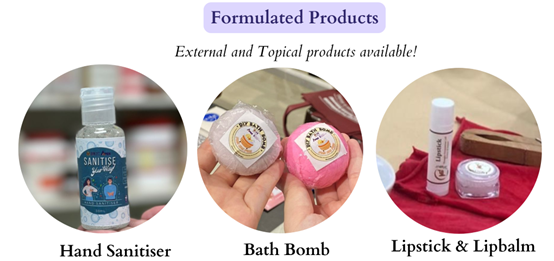Education is experiencing a crisis due to the unprecedented impact of multiple health and environmental pandemics. These disruptions have significantly hindered the advancement and application of scientific knowledge for national development. In many countries, persistent reports highlight a declining interest in science, further exacerbating the challenge (Khan, S. et al., 2023; Potvin, P., 2014). In Malaysia, the percentage of upper secondary students enrolled in the science, technology, engineering, and mathematics (STEM) stream has declined from 45.2% in 2017 to 40.94% in 2022. As the country aspires to rank among the world’s top 20 nations in terms of economic growth, societal well-being, creativity, and innovation by 2050, the Ministry of Science, Technology, and Innovation (MOSTI) is actively working to foster interest in STEM from an early age.
Multiple factors have been identified as contributors to this declining trend, including individual differences, a shortage of experienced experts and teachers, institutional challenges, and country-specific policies. These policies, in turn, are indirectly influenced by broader cultural practices, which can either serve as barriers or facilitators to effective educational transmission (Khan, S. et al., 2023; van Griethuijsen et al., 2015). An intriguing finding from the Malaysian region, particularly in the context of Sustainable Development Goal (SDG) practices in primary schools, highlights a gap between policy implementation and the top-down educational blueprint for sustainability. This disconnect has resulted in misinterpretations and inefficiencies in knowledge transfer, leaving teachers, who directly engage with students, without the necessary clarity and support to effectively integrate sustainability practices into their teaching (Chan et al., 2024).
From August 21 to 23, 2023, a STEM activity titled “DIY Cosmetics” was designed by Global Young Academy (GYA) members, Associate Professor Dr. Chan Siok Yee and Dr. Sri Fatmawati. This hands-on cosmetic-making workshop was part of the Borneo Science Adventure Tour, a series of science outreach programs aimed at engaging students in rural areas. The tour took place across three rural districts in Sabah state, East Malaysia, Kota Marudu, Pitas, and Kudat. Organized by the Academy of Sciences Malaysia (ASM), with GYA as a strategic partner, the initiative sought to cultivate interest in science and enhance public awareness of the role of Science, Technology, and Innovation (STI) in everyday life. Through interactive learning, the program aimed to bridge the gap between theoretical knowledge and practical applications, particularly in underrepresented communities.
This program attracted over 500 students, offering free participation in engaging science activities. Students received step-by-step guidance to create lip scrubs and lip balms/sticks using Do It Yourself (DIY) kits made from natural ingredients and recyclable materials. To promote safe cosmetic use, informational leaflets were distributed in both English and Malay, ensuring accessibility for the local community. The DIY cosmetics activity was met with overwhelming enthusiasm from both students and teachers. In a brief interview, Humaira, a local school teacher, expressed her excitement at seeing students actively engaged in hands-on experiments—an opportunity rarely available in the standard school curriculum due to limited resources (Figure 1B). She further remarked that the simplicity of the DIY activity made it easy to replicate in her own classroom, extending its impact beyond the event itself.

Figure 1: Preferred mode of learning in (A) general topics and (B) STEM-related topics, n=45
Student feedback was overwhelmingly positive, with the GYA-hosted station receiving a mean score of 4.37 out of 5 for student interest. Notably, 73% of respondents expressed a preference for hands-on activities over traditional classroom learning. When asked about potential improvements, students responded with enthusiastic remarks such as “Mau lagi program macam ini” (translated: We want more programs like this) and “Sudah bagus” (translated: Already very good), highlighting their appreciation for interactive, experiential learning opportunities.
The program garnered significant local attention through news coverage and social media. Building on this success, the team refined the workshop and conducted a similar science outreach at SRJK(C) Shu Ren, a rural school in Melaka, Malaysia as part of the “Greenastic Camp.” This iteration of the cosmetic-making workshop emphasized the use of eco-friendly and natural ingredients, aligning with the camp’s sustainability theme. A brief survey among participating students revealed strong engagement. At the primary school level, students rated their interest in the activity at an average of 4 out of 5 on the Likert scale. In a post-workshop survey, 74.2% of students reported that the hands-on experience enhanced their interest in science, while the remaining students responded neutrally. Interestingly, survey results suggested that a lack of interest in science is not a significant issue among primary school students. This contrasts with findings at the secondary level, where interest in STEM subjects tends to decline. This discrepancy may be attributed to the increased complexity and difficulty of STEM subjects as students progress in their education, underscoring the importance of sustained engagement and innovative teaching approaches (Potvin, P., 2014).

Figure 2: Products of the workshop
Building on the success of the workshops and the overwhelmingly positive feedback, the team registered their module for intellectual property under registration number TS/IO/2020/090 (Figure 2). In November 2024, they showcased their innovation at the national pitching competition, INNOZZILA, where it attracted significant attention from participants and exhibitors. Their efforts were recognized with a gold medal in the Education Innovation category. More recently, the team has joined a prestigious national initiative—the “Program STI 100,” proposed by the Prime Minister of Malaysia (KOSMO News, 17 July 2024). This initiative aims to “match” 100 young scientists with 100 schools, fostering sustained engagement between students and scientific role models. By providing consistent exposure to real-world science, the program aspires to inspire students to pursue careers in science and contribute to the country’s technological and scientific advancements.
The inspiration behind the product preparation workshop was driven by the commitment of young scientists to give back to the community. Leveraging their expertise, the team developed innovative, ready-to-use formulations and designed simplified, hands-on activities tailored to different learning levels. Given the program’s focus on rural and underprivileged communities, meticulous planning went into premixing materials and structuring step-by-step educational modules to ensure accessibility and ease of implementation. Aligned with the “green” concept, the team also minimized the use of single-use plastics, carefully balancing sustainability with the need for hygienic practices in product preparation. Ultimately, success is neither instant nor achieved in isolation. The impact of these programs is a testament to the power of teamwork, collaboration, and the unwavering passion of these young scientists, who are dedicated to making a difference through science outreach and education.
Acknowledgements
The authors would like to thank GYA and AKEPT (AKADEMI KEPIMPINAN PENDIDIKAN TINGGI | HIGHER EDUCATION LEADERSHIP ACADEMY) for the support in the execution of this program and for conducting the survey under the theme of “Young Minds in Technology Advancements”.
References
Khan, S., Shiraz, M., Shah, G., & Muzamil, M. 2023. Understanding the Factors Contributing to Low Enrollment of Science Students in Undergraduate Programs. Cogent Education 10 (2). https://doi.org/10.1080/2331186X.2023.2277032
Potvin, P., Hasni, A. 2014. Analysis of the Decline in Interest Towards School Science and Technology from Grades 5 Through 11. J Sci Educ Technol 23: 784–802. https://doi.org/10.1007/s10956-014-9512-x
van Griethuijsen, R.A.L.F., van Eijck, M.W., Haste, H. et al. 2015. Global Patterns in Students’ Views of Science and Interest in Science. Res Sci Educ 45: 581–603. https://doi.org/10.1007/s11165-014-9438-6
Siok Sin, Chan. 2023. Evaluation of Knowledge, Awareness and Behaviour on Sustainable Development among Melaka School Teachers, Master of Science, Centre of Global Sustainability Study, Universiti Sains Malaysia.
KOSMO News. 2024. ZUBAIDAH IBRAHIM, 100 Saintis Turun ke Sekolah, Tarik Minat Pelajar dalam STEM. 17 July.

